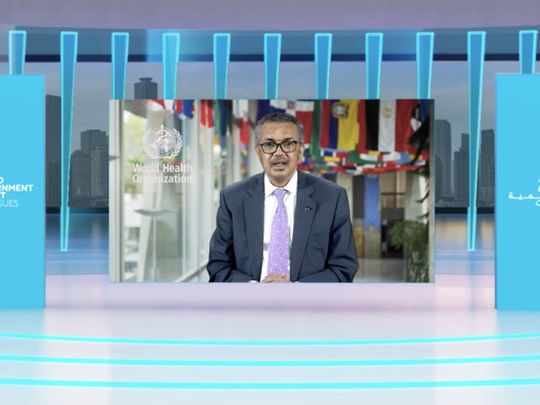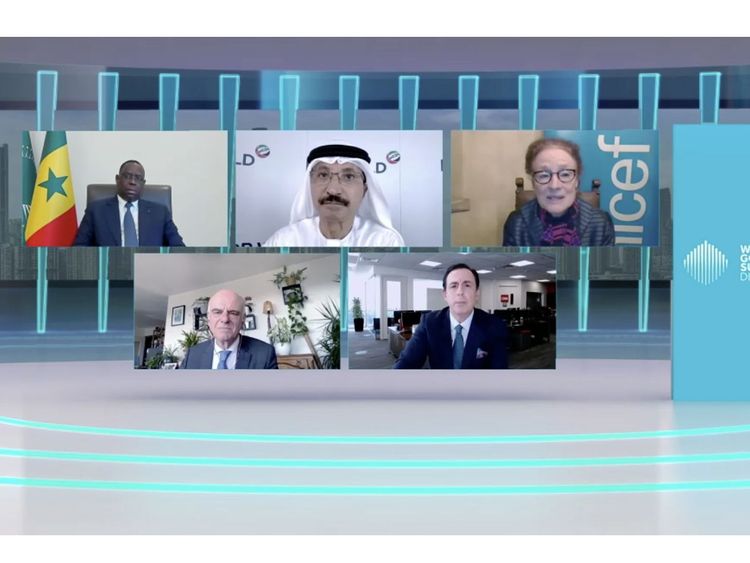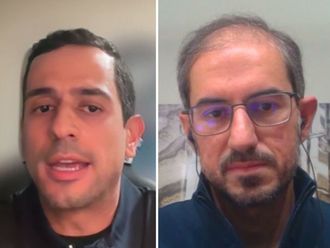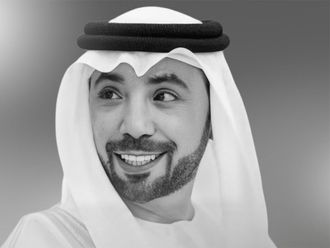
Dubai: Vaccine nationalism, where richest nations have secured billions of doses of COVID-19 vaccines while developing countries struggle to get supplies, is harmful for all as it will only prolong the pandemic as well as humanitarian and economic sufferings.
The warning was underlined by Dr Tedros Adhanom Ghebreyesus, director general of World Health Organisation, at the conclusion of the two-day World Government Summit Dialogues in Dubai on Wednesday. Dr Tedros added vaccines will definitely help in putting the pandemic under control but vaccine nationalism will only slow down global recovery.
In a separate report by World Economic Forum, vaccine nationalism — where countries prioritise their own vaccine needs — “will handicap not just the global health recovery but the economic one, too, with one report estimating its impact at more than US$1 trillion per year.”
Equitable share
“In combination with proven public health measures, vaccines are now giving us hope for bringing the pandemic under control,” said Dr. Tedros, adding: “But we will only do that if vaccines are shared equitably among nations. The more opportunity the virus has to spread, the more opportunity it has to change in ways that could make vaccines less effective.
“Vaccine nationalism will only prolong the pandemic, and the human and economic suffering that goes with it. And although vaccines will help, we will still be left with many of the same challenges we had before,” he underlined.
Universal health care
Dr Tedros has also reiterated his call, which he previously made in the past edition of World Government Summit, to invest in universal health coverage. He said: “Health must be seen not as a cost to be contained but as an investment in productive and resilient populations, and a key to sustainable development.”
“The COVID-19 pandemic has turned our world upside down, and shown why strong, resilient health systems are so important. Health is not simply a product of strong and prosperous nations — it’s the foundation of social, economic, and political stability,” added Dr. Tedros, who has been at the forefront of explaining the pandemic to the world.
Fair vaccine distribution
In the following session titled ‘Will the Earth’s Population Be Vaccinated by 2021?’, experts said global immunisation by 2022 can only be a “reasonable prospect if there is fair vaccine distribution in the world.”
They noted COVID-19 vaccines have been rolled out in many countries but in most parts of the world, there are still several challenges that governments need to overcome, including vaccine availability, logistics and solving vaccine hesitancy. “Equitable vaccine distribution requires collaboration to create solutions for the multiple challenges it currently faces, and to make it easier for the world to share the vaccine,” they added.
Challenge to global corporations
Sultan Ahmed Bin Sulayem, Group Chairman and CEO of DP World, posed a challenge to global corporations to join worldwide vaccine distribution efforts. He said: “Until the vaccine is available to everyone, the pandemic will not end for anyone. I invite you to join UNICEF (United Nations International Children’s Emergency Fund), the WHO and DP World to make vaccines for all a reality. We can only do this together, with actions, not words, and commitment to a better future for all. Distributing COVID-19 vaccines is humanity’s biggest logistics challenge since the end of the Second World War.”
Bin Sulayem noted Dubai-based DP World has partnered with UNICEF to support vaccine distribution, offering its ports worldwide, logistics operations and expertise free of charge.
UNICEF manages COVAX or the COVID-19 Vaccines Global Access, a global initiative aimed at equitable access to COVID-19 vaccines for every country globally. COVAX aims to deliver at least 2 billion doses of COVID-19 vaccines by the end of 2021, including at least 1.3 billion to the 92 economies eligible for support through the COVAX facility.
Situation in Senegal
Highlighting the urgent challenge for one of West African nations, President of the Republic of Senegal Macky Sall said: “While 525,000 people will get the vaccine through the COVAX initiative, we need to vaccinate eight million people.” He said his country has so far received only 124,000 doses of the vaccine and since mid-February, 65,000 people have been vaccinated.
He noted the people of Senegal “are angry at not having greater access to vaccines it is looking increasingly difficult in achieving the vaccination target.” Although Senegal has a grant to vaccinate 20 per cent of the population, President Sall urged COVAX to consider facilitating supplies to vaccinate 30 per cent of the entire Senegal population.
Sall added Senegalese people are not only facing health challenges but also grave economic hardship as not even their Central Bank is supporting people who had suffered tremendous losses during the pandemic. He called on financial support, including deferment of global debt payments to rebuild Senegal’s fractured economy.
UAE at the forefront of global distribution
Meanwhile, UNICEF executive director Henrietta Fore praised the UAE’s effort being at the front line of vaccine global distribution. She said: “The UAE has supported the COVAX facility in the actual distribution. In Ghana last week, it provided 2,500 fridges to help in the cold chain.”
“We, as one world, need to ensure equitability, and although we are off to a good start with the target of two billion doses a year, it is likely to be at least by end-2022 before we vaccinate a majority of the population — particularly in the least developed countries. Licensing is equally a challenge here,” she underlined
For his part, David Nabarro, WHO Special Envoy on COVID-19, has criticised the rampant vaccine nationalisation and warned: “None of us are safe until we are all safe. None of us will be prosperous until we all have an opportunity to participate in global economic recovery. The only way to achieve this is together because the virus is not staying constant — it is changing all the time.”
He added “the current scenario with vaccine supplies is not enough and there is a small number of nations trying to outbid one another. Unfortunately, this free for all approach doesn’t work. Unless we do this as a globally coordinated programme, we will have to wonder six months down the line where we went wrong.”









